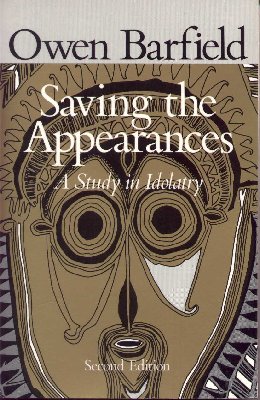
| Original Participation |
"A perspective which reveals more and more of perception and less and less of thought" (HGH 24), original participation is, Barfield explains in History, Guilt and Habit,
Evidence of the existence of original participation is apparent in the testament of language: "The farther back language as a whole is traced," Barfield notes in History in English Words, "the more poetical and animated do its sources appear, until it seems at last to dissolve into a kind of mist of myth. The beneficence or malignance--which might be called soul-qualities--of natural phenomena, such as clouds, plants or animals, make a more vivid impression at this time than their outer shapes and appearances" (83-84).a kind of consciousness for which it was impossible to perceive unfiguratively. But what does one mean when one speaks of perceiving figuratively? One means a kind of consciousness which does not, which cannot, perceive the material merely as such, which in perceiving its environment, perceives at the same time an immaterial within or through, or expressed by it. . . . a kind of consciousness for which there is no such thing as a merely "outer" world" (46).1
In original participation "the represented
is felt to be on the other side of the phenomena from the perceiving self.
At the same time, it is felt to be linked with, or related to, that self
otherwise than through the senses. The self, so far as there yet is one,
is still aware that it and the phenomena derive from the same supersensible
source" (SA 122-23).